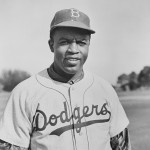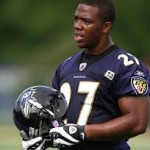Property Rights, Patriotism, and the NFL
Posted on October 10, 2017 by Robert Ringer
After an initial, kneejerk belligerence, NFL teams have shifted into damage-control mode and are doing everything within their power to make the ill-fated player protests fade quietly into the dustbin of history.
When the money-hungry, toady team owners initially rushed to support their players, I was pretty certain they would change their tune once they discovered, to their surprise and horror, that a majority of paying customers adamantly opposed the players’ protest antics.
There are two major points to consider here. First, I believe the arguments we initially heard in the media were based on a false premise — that NFL players possess rights they clearly do not possess. No matter what the arguments favoring the players may be, they are overridden by a single, inalienable right — the right of a property owner to do whatever he desires with his own property.
In a truly free society, the rights of a business owner (i.e., property owner) are virtually unlimited, so long as he does not violate the natural rights of his employees. If an owner cannot do whatever he wants with his property, he does not truly own it — no ifs, ands, or buts.
In the case of the NFL, an owner’s property rights include the right to make his employees stand, hands over their hearts, during the playing of the national anthem. An NFL player, or any other employee, has no First Amendment rights while in the workplace.
In addition, the league, which, in effect, is owned by the individual team owners, has a right to enforce its own rules, including those in its game operations manual, and those rules call the players to stand at attention, face the flag, hold their helmets in their left hand, and refrain from talking.
But what about the worker? Doesn’t he have rights? Again, in a truly free society, a worker has one overpowering, inalienable right with regard to his job: He can quit at any time he chooses, for any reason whatsoever — or for no reason at all.
In other words, the demagoguery of race baiters notwithstanding, an NFL player is not a slave. If he does not like his employer’s rules, he is free to search for employment elsewhere, which is where it gets sticky with professional football.
By “sticky,” I’m referring to the monopoly Congress granted the NFL decades ago. As a result, NFL players have no other realistic employment option other than joining a second-rate league.
Ironically, it was none other than Donald Trump who fought the NFL’s monopoly in the courts when he led the charge on behalf of the United States Football League (USFL) in its antitrust lawsuit against the NFL. The USFL won that suit, but the judge, in a strange, Comey-like ruling, stated that the NFL was indeed in violation of antitrust laws, yet mysteriously awarded the league only $1 in damages (increased to $3 because of the treble-damages clause in antitrust law).
Thus, the NFL is wrong on two counts: First, because it holds a government-granted monopoly, and, second, because Roger Goodell and team owners are unprincipled cowards who do not have the guts to enforce their own rules.
But aside and apart from property rights and monopoly issues, there’s a second major factor in this childish NFL saga that needs to be addressed, that being patriotism. True patriotism revolves around tribalism, a phenomenon that has always been with us and is with us today more than ever before. That’s what the populist movement — worldwide — is all about.
I have always believed that diversity, contrary to the constant drumbeat of the left and its allies in the fake news media, is a weakness rather than a strength, if preservation of one’s tribe is the objective. The diversity I am referring to has nothing to do with race, but everything to do with culture. And at the heart of every culture is a generally accepted code of conduct, without which no society can exist.
Prior to the anti-American, anti-Western morality revolution that began in the sixties, America’s code of conduct was based on the anti-authoritarian, freedom blueprint the Founding Fathers spelled out for us. And at the heart of that blueprint was the most civilized set of behavioral guidelines in the history of mankind. That said, if the America I grew up in is the model upon which patriotism rests, then, yes, I am a patriot in that I have always loved and supported that way of life.
What has this got to do with the NFL player protests? Everything. Even if you have a legitimate grievance against America, as an American citizen you are morally obliged to heed to its protocols, symbolisms, and traditions and abide by its generally accepted code of conduct. And included in that code of conduct is showing respect for the flag, the national anthem, and the principles set forth in our founding documents that support our way of life.
By contrast, anyone who acts in a way that shows disrespect for these symbols and principles also shows, by extension, a disrespect and lack of appreciation for those who have given their lives to protect all that we have and enjoy today — as well as those who, at this very moment, are fighting to protect us.
If someone does not believe in the moral superiority of the culture that made America the greatest and freest country on earth, it raises the question of why he should be able to reap the rewards of living in such a culture. Simple decency and civility call for NFL players to show respect for the country and fans who make their luxurious lifestyles possible.
Make no mistake about it, it’s the patriotic thing to do.










